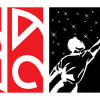Shwapno’s loss spirals to Tk 1,600cr in 15 years as finance cost gets heavier

Shwapno, the leading retail chain brand in Bangladesh, started making operating profit, but its loss accumulated to Tk 1,661 crore over the past 15 years largely due to mammoth loans that are pushing up finance costs every year.
The company's short-term loan from banks was Tk 118 crore in 2022-23 while the long-term debt was Tk 425 crore. The inter-company loan amounted to Tk 1,163 crore, according to the financial reports for the year that ended in June.
Established in 2008, Shwapno has become a household name in cities, particularly the capital, among those who prefer to carry out shopping from a single store. At present, the brand is operating through a network of more than 440 outlets.
In 2016, Shwapno was recognised as the Best Retail Brand in Bangladesh jointly by Kantar Millward Brown and the Bangladesh Brand Forum.
"Shwapno is making operating profits but it is incurring a net loss as it had huge finance costs for the loans," said Sabbir Hasan Nasir, executive director of ACI Logistics, which owns Shwapno.
The net finance cost was Tk 153 crore in FY23, up from Tk 126 crore a year earlier, the financial report showed. Thus, the retail chain incurred a loss of Tk 152 crore in the last fiscal year against Tk 135 crore in 2021-22.
Nasir said Shwapno is counting compound interest on the loans, so the finance cost is going up every year and hitting the bottom line.
Shwapno's debt to equity ratio, which compares a company's total liabilities to its shareholder equity, is 44 while it is 2.3 for Thailand's CP ALL, the owning company of Southeast Asian country's popular retail chain 7-Eleven.
India's Big Bazaar's debt to equity ratio was 9.34 in 2022 while it is 0.49 for the world's largest retail chain Walmart, according to their annual reports. Most of the global chain shops have a ratio that is less than 1.
The optimal debt-to-equity ratio varies by industry, but it should not be more than 2, according to Investopedia.
Nasir says if the inter-company loans of Shwapno are converted into equity, the finance cost will not soar and the company can start making profits.
"The huge leverage is the main reason for the loss because higher loans are increasing the finance costs," said Kazi Ahsan Maruf, managing director of Ekush Wealth Management, an asset management company that invests funds in the stock market.
ACI Logistics is the subsidiary of ACI Ltd, which has been listed with the stock market since 1976. Due to the mounting losses incurred by some subsidiaries including ACI Logistics, the group was in the red in recent quarters.
"As Shwapno's business is based on high volume and low margin, this type of business can't run profitably when the amount of loans is at an elevated level," Maruf said.
According to the financial analyst, the board can think of raising its equity since it is tiny compared to the size of the business. Shwapno's equity is Tk 36 crore.
The company's current liabilities exceeded its total assets by Tk 1,363 crore in FY23. The current liabilities stood at Tk 2,038 crore and the assets amounted to Tk 675 crore.
However, Nasir says the market valuation is much higher than the accumulated loss.
"Already, a foreign investor has proposed a value of more than Tk 1,800 crore. We think it will be over Tk 2,500 crore."
If the board secures equity investment, it may turn profitable since it is already making operating profits. If Shwapno converts its inter-company loans into equity investment, it also may return to the black.
Another option could be if the company sets up more stores, the growing operating profits may also absorb the finance costs.
"To do that, we are targeting to open 400 stores every year," said Nasir. Currently, the chain is opening 25 stores every month.
"If we can meet the target, we will reach break-even within four years since the sales growth is high."
Sales rose 32 percent year-on-year to Tk 1,832 crore in FY23.
"Customers want to carry out purchases within their walking distance, so a large number of stores will ensure higher growth," Nasir said.
Shwapno said despite facing macroeconomic distress, the company exhibited remarkable resilience with a noteworthy growth in sales and a substantial increase in gross profit.
Operating expenses were efficiently reduced, contributing to operational improvements. So, profits before interest rate saw a substantial improvement by increasing from Tk 0.2 crore to Tk 13 crore.
Additionally, a rise in the minimum tax, linked to revenue growth, added to the challenges.
Despite challenges stemming from the industry's novelty for customers, evolving government regulations and uneven VAT structures, the sales and gross profit growth underscores its adaptability and strategic prowess, according to Shwapno.
To fuel growth, Shwapno has relied on bank debt. Although the loans have led to an accumulation of the net loss, the firm sees this as an essential investment for expansion and is optimistic about the future.
"Global equity investors have expressed keen interest in collaborating with us. This highlights the attractiveness of our business model and growth prospect," it said.
"Additionally, we are actively considering capital restructuring as part of our strategic initiatives."

 For all latest news, follow The Daily Star's Google News channel.
For all latest news, follow The Daily Star's Google News channel. 








Comments